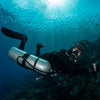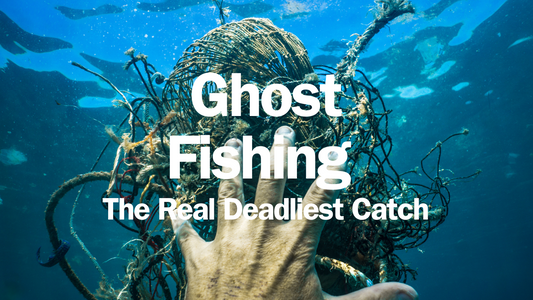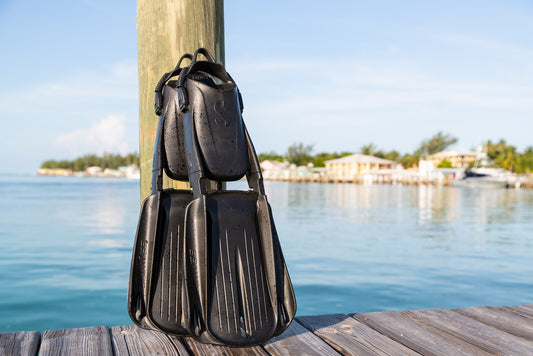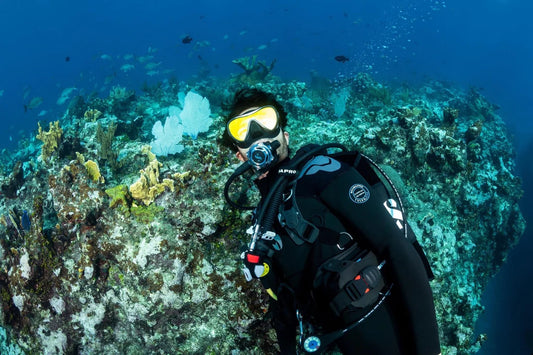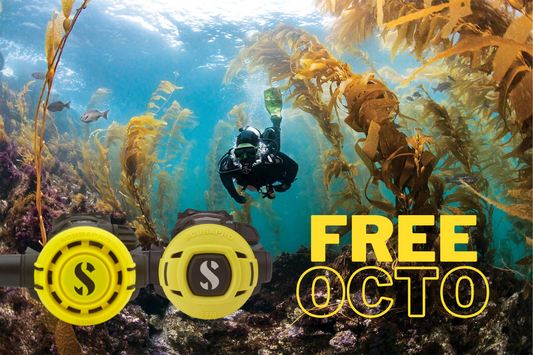A guide to why you should buy your snorkelling equipment from a proper dive shop, rather than doing a bargain supermarket sweep.
Here at Mike’s we have an expert team of staff who can offer advice over the phone, online or in person at our store. They can help you when trying on equipment to ensure the best fit and that you buy the right product based on your needs. In a supermarket environment that service is not offered, and you are shopping blind when it comes to adding something to your trolley for watersports. Masks are usually displayed in blister packs, so you can’t try them on and there isn’t a changing room to ensure that a wetsuit fits snugly. Online reviews can be really helpful when you are choosing kit, but unknown supermarket brands are not going to have any 4 or 5 star reviews readily available.
Here at Mike’s we pride ourselves on only selling diving and snorkelling equipment from the world’s top manufacturers. This is to ensure you have good quality gear that is comfortable, will keep you safe and provide many more experiences into the future. See our advice below on why you probably shouldn’t be buying snorkelling equipment where you do your weekly food shop:
Snorkelling Masks
- Mask skirts should be made from soft (often medical-grade) silicone. This ensures comfort, flexibility and to avoid unsightly marks being left imprinted on your face. Many supermarket brand masks will have plastic skirts which can feel hard on the soft parts of your face. They may leak if your skin wrinkles (smiling can do this) and they discolour easily by turning an unsightly brown hue. You may also need a hypo-allergenic skirt which you won’t be able to purchase in your local grocery store.
- Well-made masks come with a film on both lenses. This is done in the factory to ensure they do not get scratched in transit. To remove this film you should use an anti-fog or toothpaste prior to use. The chances of a supermarket brand mask being made like this is unlikely, and therefore it may already have been damaged before it hits the shelf.
- Tempered glass is safe as it does not shatter in the event of being accidentally smashed (it crumbles instead). Any other glass will not have the strength to withstand being thrown onto baggage trolleys and into the hold of a plane!
- Cases not blister packs. Once you open a plastic blister pack it will need to go in the bin. Where then are you going to store your mask? Most of the bigger brands supply a decent case with each mask.
- If you have a small face the chances of being able to choose from a range of low volume or dedicated small fit masks in a supermarket are slim.
- Many straps have an easy adjust mechanism that does not need you to remove the mask to tighten or loosen. It is unlikely supermarket brand masks will all have this. If the mask is too tight it can cause a headache and squeeze.
- Full face masks for snorkelling have become very popular in recent years. They reduce jaw fatigue as there is no need to grip a snorkel. A full face mask however has a much larger air volume that could (if not made properly) lead to pockets of stale air building up. If the air isn't properly circulated the carbon dioxide levels in the mask increase and then in your blood, leading to carbon dioxide poisoning. We sell products by Ocean Reef who have been researching and developing full face scuba diving masks for years, so they fully understand the problems that face this type of product. Cheap versions of full face masks will have some modifications to the structure to make them quicker and easier to manufacturer.
Snorkels
- We have a choice of 3 types of snorkel on sale at Mike’s Dive Store – the standard J shape snorkel, purge snorkel, and dry snorkels. It is unlikely you will have this wide range in a supermarket. Dry top snorkels prevent water from entering if the snorkel top goes below the surface or if the water is choppy; the one-way valve on a purge snorkel requires the user to simply exhale to drain away any water in the mouthpiece. Our experienced staff can show you how to use each type of snorkel correctly.
- Be aware that many snorkels have small working parts like floats or valves. A poorly manufactured snorkel could result in these parts breaking or becoming dislodged. This can cause water ingress and subsequent panic.
- The corrugated hose or angled piece of a snorkel is made from high grade silicone. Cheaper versions may not be and are therefore likely to perish with prolonged salt water use. The mouthpiece could also split. We sell some snorkels at Mike’s with soft allergy-free silicone mouthpieces which are unlikely to be available on a supermarket shelf.
- The sheer variety of snorkels to choose from in a dive shop include corrugated, bent and collapsible designs! There is also a massive range of colours that match both masks and fins.
Snorkelling Fins
- A good pair of fins should be made from Thermoplastic rubber, Monoprene or multi-composite plastics. This gives them longevity. Cheaply produced supermarket fins can be made from hard plastics that will cause discomfort and blisters. Their colour may also fade in sunlight over time.
- Cheaply produced materials can be either too heavy which can make you negatively buoyant and cause cramp; or if they are too light you may not be able to kick efficiently in a current.
- Good fit is important. Proper snorkelling fins usually fit between 2-3 shoe sizes, which allows for an element of growth in a younger snorkeller.
- A member of our staff can show you the best methods for getting fins on and off, a service you won’t be offered in a food hall. We also sell special snorkelling fins with bungee straps which are not available in supermarkets.
- Special socks and aqua shoes reduce rubbing and blisters and work well with closed or bungee fins. You can purchase these with your fins from a dedicated dive shop.
Snorkelling Wetsuits and Rash Vests
- Wetsuits are given a grade for their thermal properties. Surfing and bodyboarding suits will be fine at the surface for short periods of time but won’t keep you warm when immersed for extended snorkelling sessions. Cheaply produced wetsuits may not have a proper lining which could a) make you colder and b) will not last very long.
- A properly fitting wetsuit should be snug and stops water flushing in and out. You may not be able to try a suit on in a supermarket, and it is important to check that it has flexibility in the correct places. Tightly fitting suits can make you feel out of breath.
- Good quality stitching on a wetsuit is important to ensure it doesn’t split, unravel or feel uncomfortable against bare skin. At Mike’s we have a range of wetsuits with watertight blind-stitched seams or glued and taped seams.
- Good rash vests have an Ultraviolet Protection Factor (UPF) which will reduce the harmful effect of the suns UV rays on your skin. Many supermarket rash vests will not have this important feature.

